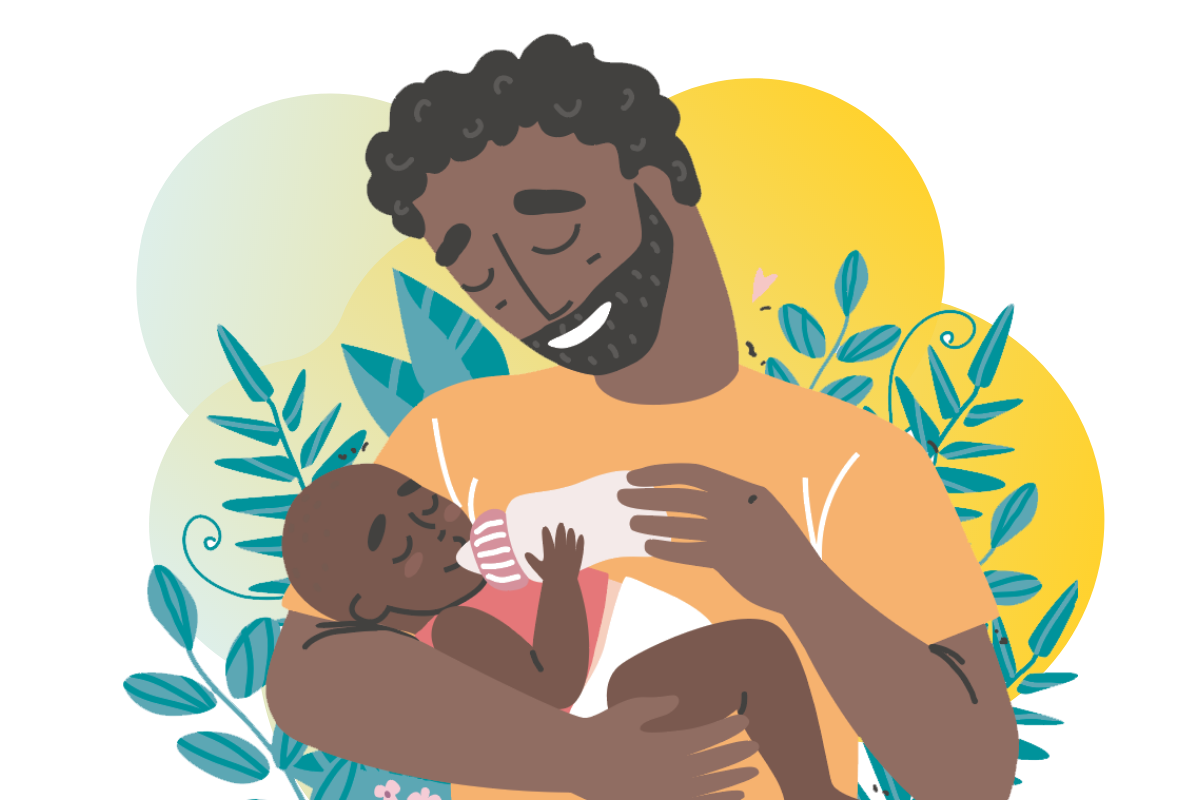
For providers and caregivers
The Resilient Neonatal Intensive Care Unit (NICU)
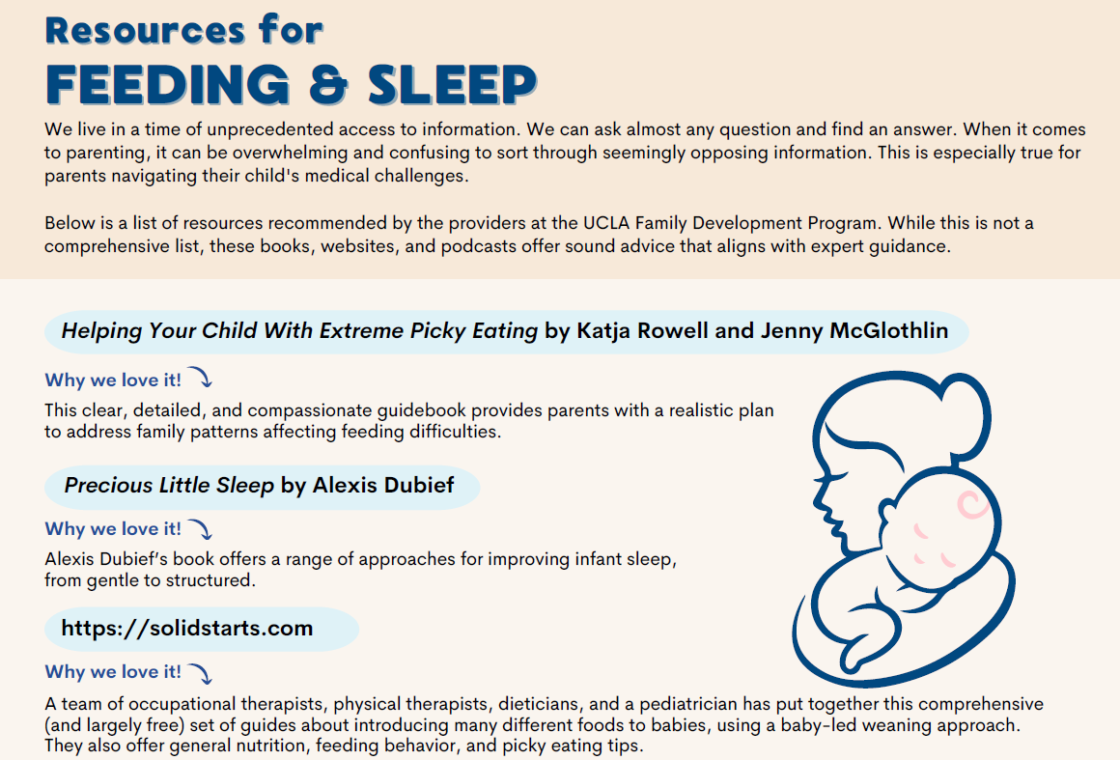
NICU Resource List
Explore four distinct resource lists on key topics for NICU families and providers.
See a full list of resources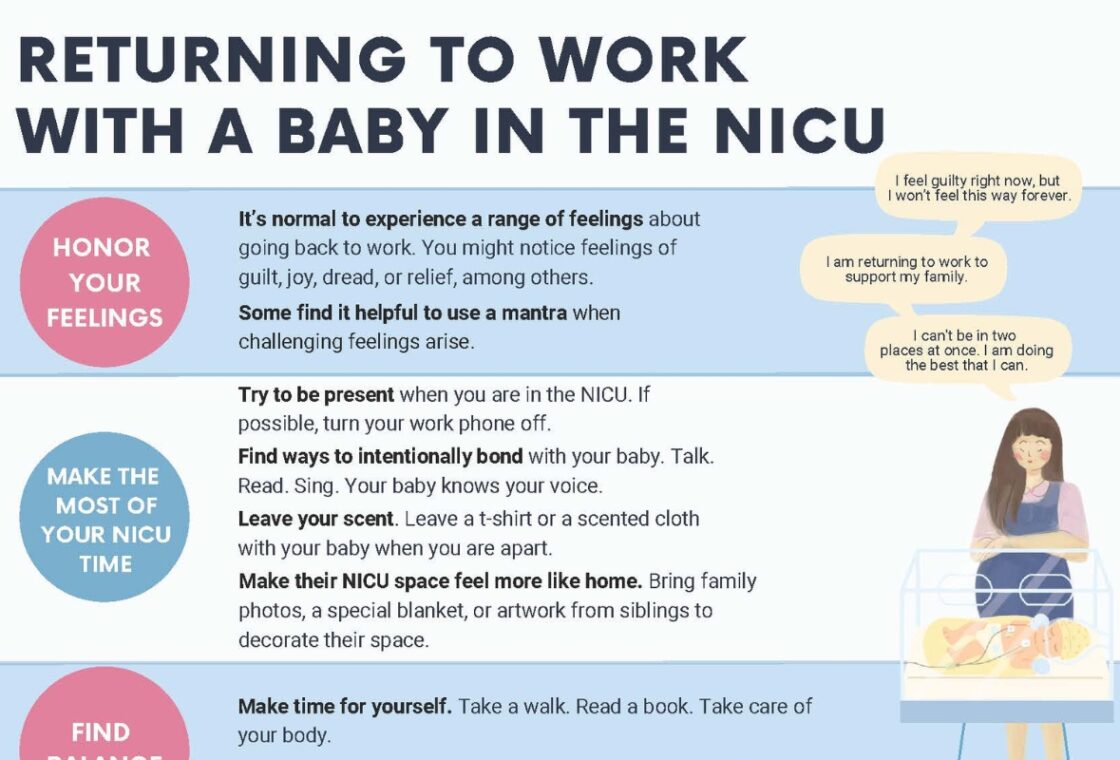
Returning to Work With a Baby in the NICU
This handout addresses the challenges of returning to work while a baby is in the neonatal intensive care unit (NICU), and offers strategies for coping with complex emotions and practical needs. It emphasizes self-care, maintaining a connection with the baby, and navigating work-related issues.
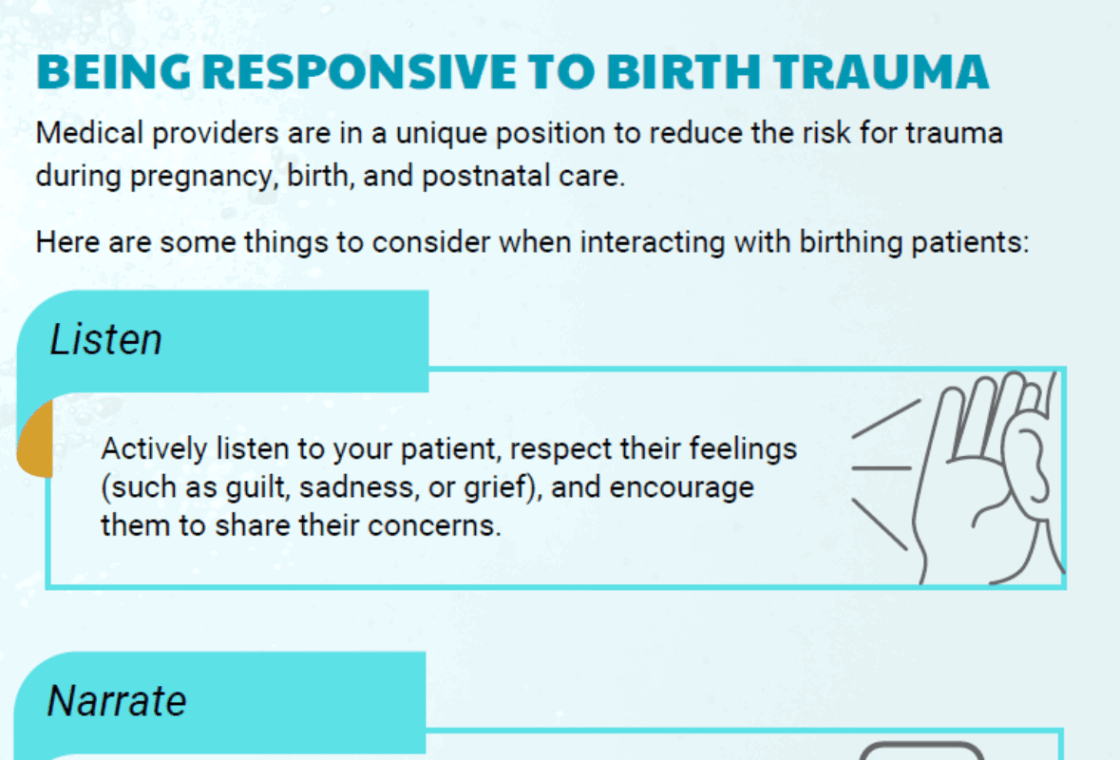
Being Responsive to Birth Trauma
Medical providers are in a unique position to reduce the risk for trauma during pregnancy, birth, and postnatal care. This handout will provide some things to consider when interacting with birthing patients.
Access Handout

Safe Sleep Conversations
Caregivers and providers both want babies to thrive. This video highlights some ways to set the stage for culturally sensitive sleep conversations, and how to find common ground for supportive and effective information sharing.
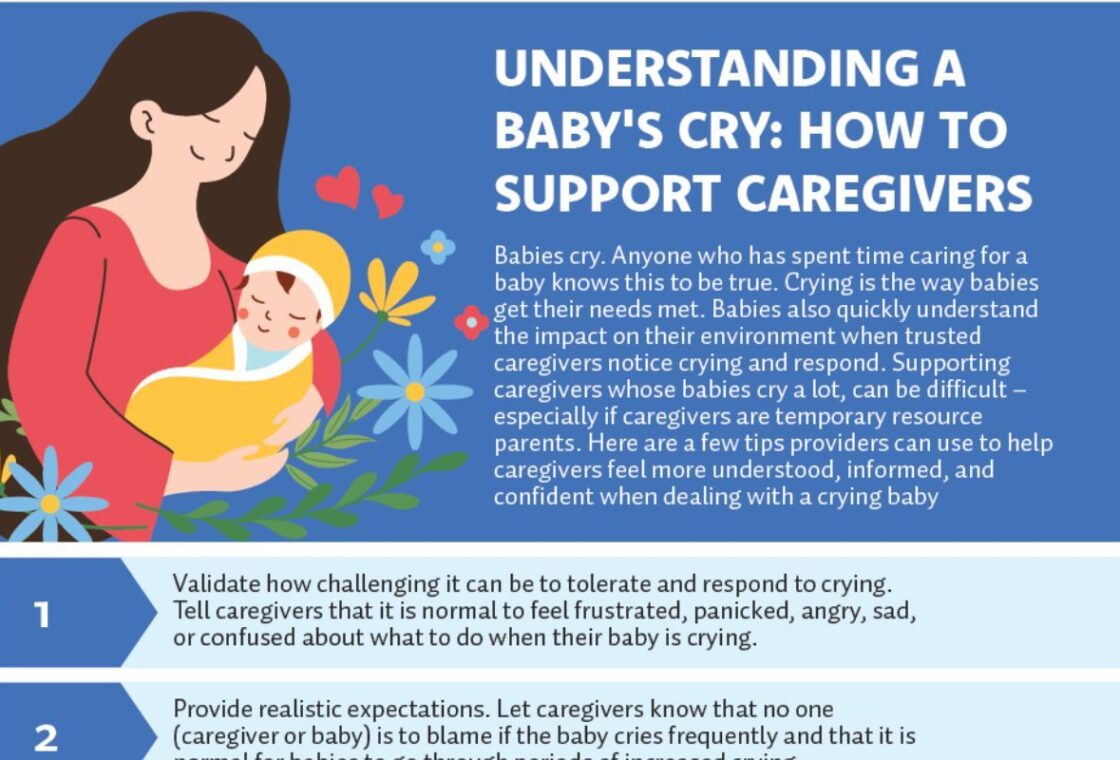
Understanding a Baby's Cry: How to Support Caregivers
Anyone who has spent time caring for a baby knows that they cry, but some babies may cry more than others. Although this can be a normal part of their development, it can become overwhelming for caregivers. Providers can use this tip sheet to help caregivers feel more informed and confident when caring for a frequently crying baby.
NICU Resources
Implementing trauma and resilience informed care while supporting families in the NICU
Visit the Wellbeing for LA Learning Center to access the full NICU resource collection, developed by the UCLA Family Development Program, for more ways to incorporate a trauma and resilience informed approach in the NICU through virtual trainings, videos and printable tools.
-

Microaggressions in the NICU Handout
Foster an inclusive environment that actively addresses and educates about microaggressions to enhance the quality of care for the diverse communities. -

The Resilient NICU Course
Explore ways to help alleviate the impact of trauma for families, providers, and caregivers. -

Sharing Your NICU Story
Sometimes, people want to know about your baby's time in the NICU. -

Feeding Newborns: Inclusive Strategies to Build Empathy and Equity With Families
Feeding is a caregiving act that can bring up a wide range of emotions, including joy, contentment, guilt, worry, and frustration. -

Supporting Dads in the NICU
Recognize strategies that providers can reference to better support dads with infants in the NICU. -

Addressing Disparities in Healthcare Settings
Increasing self-awareness can help us better understand our own explicit and implicit biases.